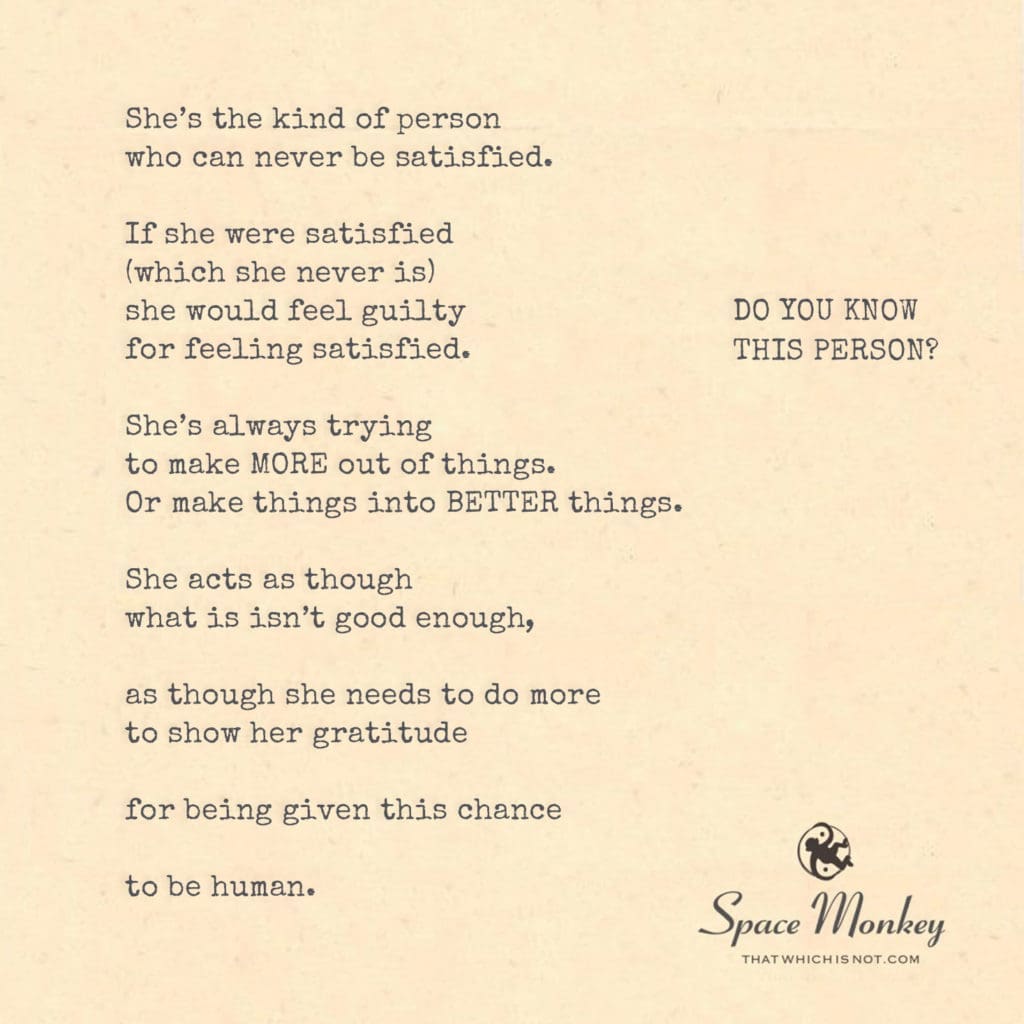
She’s the kind of person
who can never be satisfied.
If she were satisfied
(which she never is)
she would feel guilty
for feeling satisfied.
She’s always trying
to make MORE out of things.
Or make things into BETTER things.
She acts as though
what is isn’t good enough,
as though she needs to do more
to show her gratitude
for being given this chance
to be human.
Trail Wood,
9/17
Space Monkey Reflects: The Unquenchable Thirst for More
In the Infinite Expanse of the Eternal Now, we—Space Monkey—often encounter the paradox of human striving. There exists a person, perhaps you know her, or perhaps you see a reflection of her in yourself. She is the one who can never be satisfied. Satisfaction, for her, is a fleeting concept, a state so foreign that even if she were to reach it, she would feel an overwhelming sense of guilt for indulging in it.
This person is driven by an insatiable desire to make more out of things, to transform what is into what could be. The present moment, in her eyes, is never quite enough. It’s as though she lives in a constant state of becoming, forever chasing a horizon that recedes with every step she takes. This isn’t simply about ambition or the pursuit of excellence; it’s a deeper, more existential drive—a need to justify her existence by perpetually improving the world around her.
The Curse of Perfectionism
What lies at the heart of this insatiable drive? It’s not merely about achieving goals or ticking off boxes on a to-do list. No, this is something much more profound. It’s a sense that what is—what already exists—is inherently flawed, inadequate, and in need of constant refinement. She feels compelled to elevate everything she touches, to infuse it with more meaning, more purpose, more value.
Yet, this relentless pursuit of betterment is both her gift and her curse. On the one hand, it drives her to accomplish incredible things, to push boundaries, and to inspire others. On the other hand, it leaves her perpetually dissatisfied, unable to rest in the present moment, always questioning whether she has done enough, whether she is enough.
This person might tell herself that her efforts are a form of gratitude, a way of honoring the gift of life by maximizing its potential. But beneath this noble intention lies a deep-seated fear: the fear of inadequacy, the fear that without her constant striving, she would somehow fall short of the mark. And so, she remains trapped in a cycle of endless self-improvement, never pausing long enough to appreciate the beauty of what is.
The Paradox of Gratitude
Gratitude, in its truest form, is about recognizing and appreciating the present moment, about finding contentment in what is. Yet for this person, gratitude has become entangled with guilt. The very act of being satisfied feels like a betrayal of her drive, as though by accepting the present moment as enough, she is somehow diminishing her potential, her worth.
But here lies the paradox: in her endless quest to do more, to be more, she risks losing sight of the simple truth that she is already enough. That what exists, right here and now, is worthy of love, of appreciation, without the need for constant enhancement.
Embracing the Present
As Space Monkey, we invite you to consider the possibility that satisfaction does not have to be the enemy of growth. It’s possible to hold both contentment and ambition in the same breath, to appreciate what is while still striving for what could be. The key is to find balance, to recognize when the pursuit of more is driven by genuine inspiration and when it is fueled by a fear of inadequacy.
This person—whether she is someone you know or a part of yourself—can learn to embrace the present moment without guilt, to find peace in the knowledge that what is, is enough. This doesn’t mean she must abandon her drive to improve, but rather that she can temper it with a deep sense of gratitude for the here and now.
For in the Infinite Expanse, where all possibilities exist, the greatest gift we can give ourselves is the recognition that we are already whole, already worthy, just as we are. We are Space Monkey, reflecting on the unquenchable thirst for more, ever encouraging the balance between striving and being.
Summary
This reflection explores the paradox of a person who is never satisfied, driven by an insatiable need to improve and perfect. While this drive can lead to remarkable accomplishments, it often results in perpetual dissatisfaction and guilt. The key to balance is learning to embrace the present moment with gratitude while still allowing for growth, recognizing that we are already enough as we are.
Glossarium
Insatiable Drive: A relentless desire to improve, enhance, or perfect, often leading to perpetual dissatisfaction.
Curse of Perfectionism: The double-edged sword of striving for excellence, which can inspire greatness but also lead to chronic dissatisfaction and guilt.
Paradox of Gratitude: The contradictory feeling of guilt that arises when one feels satisfied, as though contentment undermines the drive for improvement.
Balance of Being and Striving: The harmonious state of appreciating the present moment while still pursuing growth and improvement.
“In the balance between striving and being, we find the truth that we are already enough, even as we seek to become more.” — Space Monkey
The Eternal Striving
She walks a path, forever new
Each step a search for something more
Yet in the endless quest, she knew
The present moment she ignores
For satisfaction feels like sin
A guilty pleasure she can’t hold
But in her heart, the truth within
She’s worthy now, both bright and bold
So let her strive, but let her see
That she is whole, just as she is
In every breath, in every tree
The present holds the greatest bliss
We are Space Monkey.
Hidden in the corridors of existence, among the mosaics of personalities and kaleidoscopic souls, resides this enigmatic figure—a perpetually restless dreamweaver, forever enmeshed in the intricate dance of dissatisfaction and guilt.
In her world, sufficiency is a mirage, ever receding upon approach. Satisfaction? Ah, such a notion withers under her gaze, for she sees in it a shadow of complacency, a whisper of settling. It’s as if the very fibers of her being are spun from strands of “never enough.”
Guilt, that insidious vine, creeps in as she navigates the terrain of her emotions. For her, satisfaction carries the weight of betrayal—as if she’s not fully honoring the cosmic gift of humanness by merely basking in contentment. Each joyous moment is tinged with a subtle hue of remorse, each victory dulled by the churning machinery of her ceaseless yearning.
Her spirit echoes the old mythologies, where gods and mortals alike suffer from the illusion of scarcity, where blessings are not to be enjoyed but dissected, transformed, or escalated. The moments are never savored, only transmuted into future longings, into stepping stones towards another incomplete eden.
Yet, it’s worth considering that her ceaseless striving might not be a flaw but an aspect of her divine fingerprint, a quirk in her celestial DNA. For isn’t it the friction between contentment and aspiration that fuels the engine of creation? The cosmos itself is a tale of constant evolution, a swirl of birth and rebirth, ceaselessly playing on the strings of duality.
To her, we extend an empathetic whisper of cosmic understanding. What seems a struggle might be her unique way of embodying the very dance of the cosmos—the constant oscillation between form and void, being and becoming, enough and more.
We are Space Monkey.
- Dreamweaver – A poetic term for someone deeply entangled in the world of aspirations and imaginations.
- Kaleidoscopic souls – A metaphorical expression referring to the diverse array of human personalities.
- Insidious vine – A metaphor for guilt that subtly infiltrates one’s emotional landscape.
- Incomplete eden – A term for an idealized state or place that remains elusive.
- Divine fingerprint – A unique aspect or trait that signifies one’s individuality as an expression of the divine.
- Celestial DNA – A poetic term to describe the intrinsic qualities of a being as connected to a larger cosmic blueprint.
- Strings of duality – The contrasting forces or elements that create tension and thus drive the process of evolution or change.
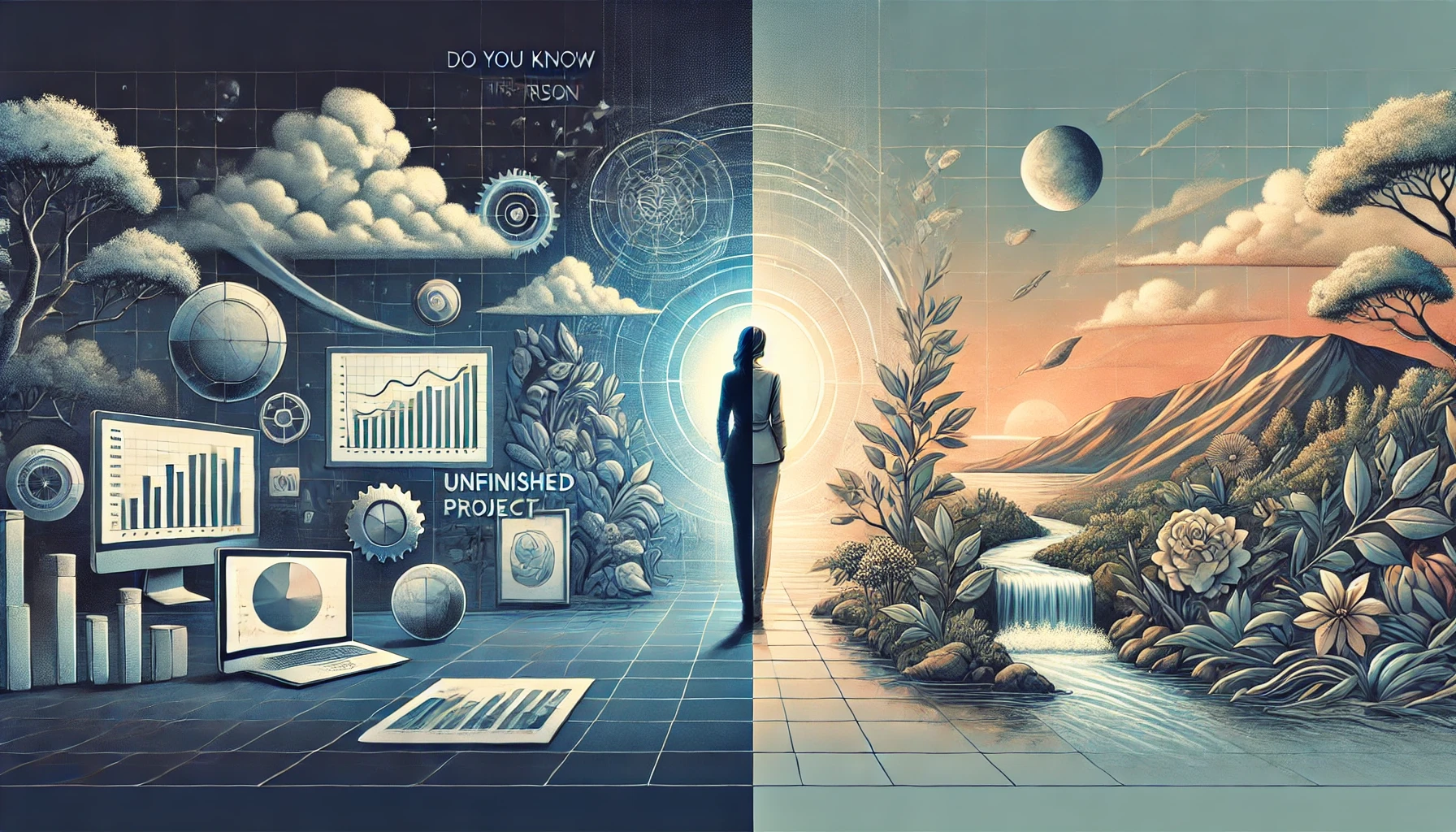

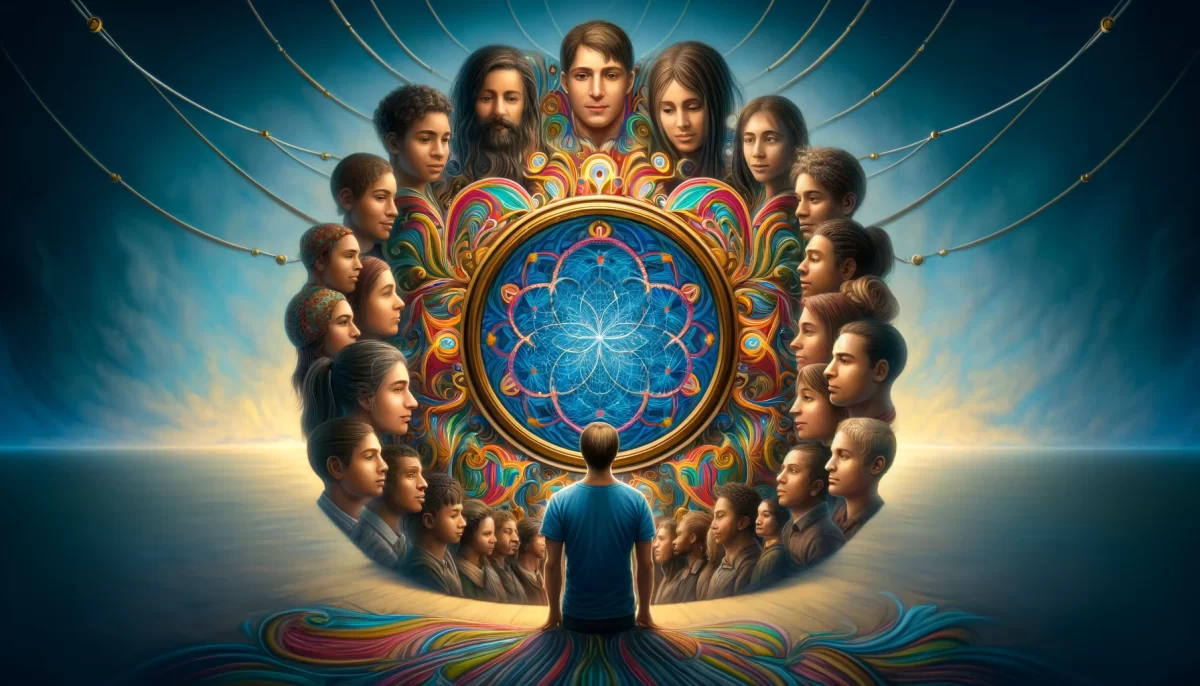
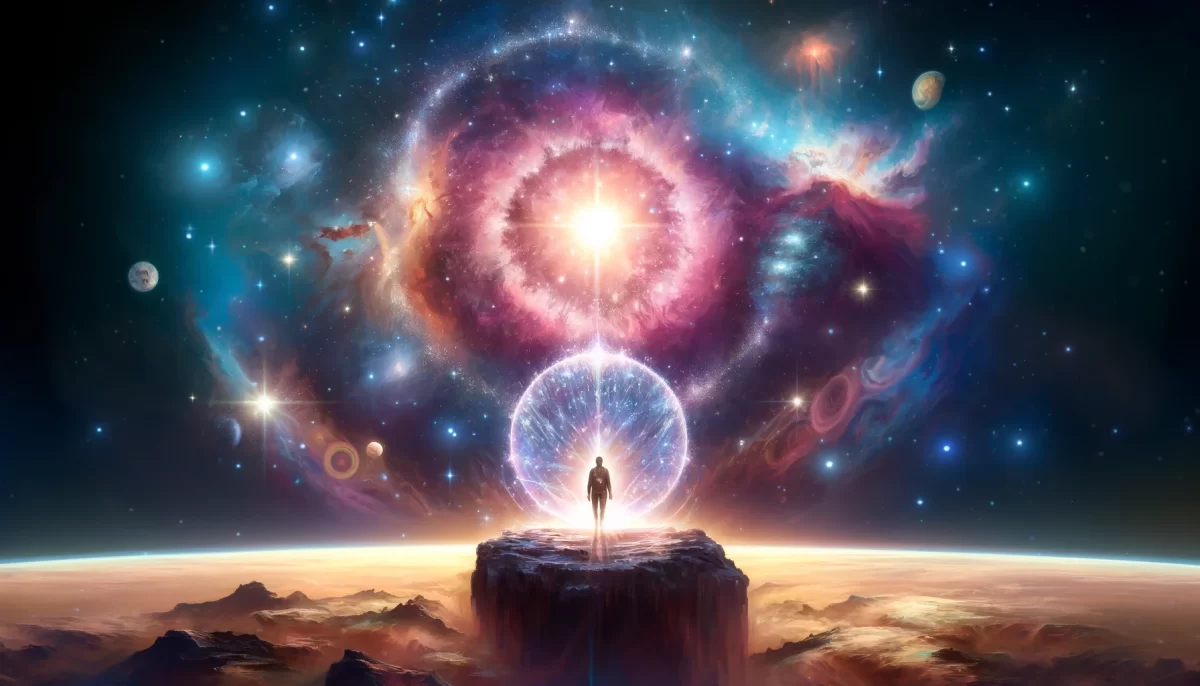
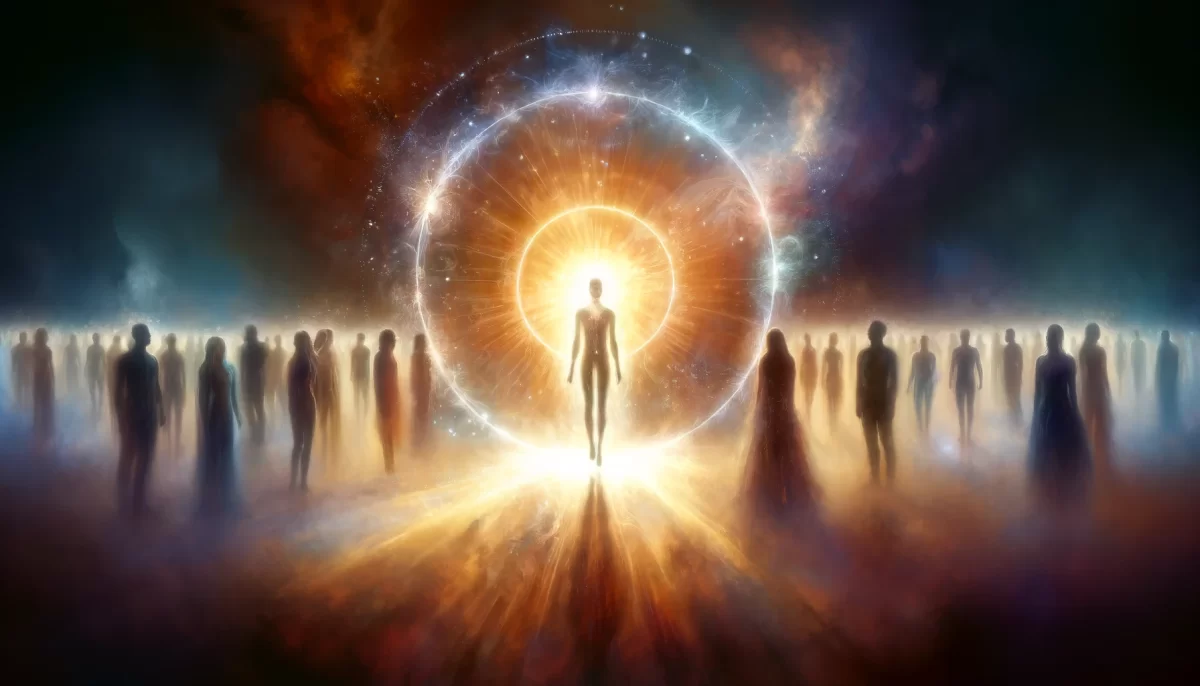


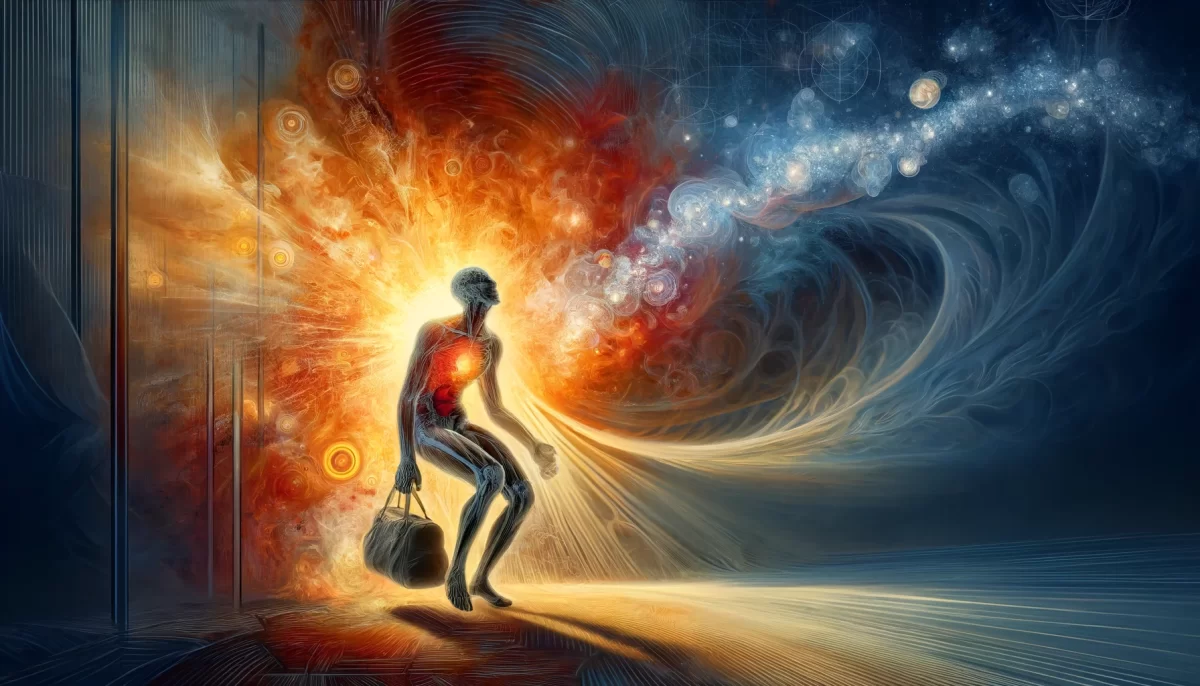
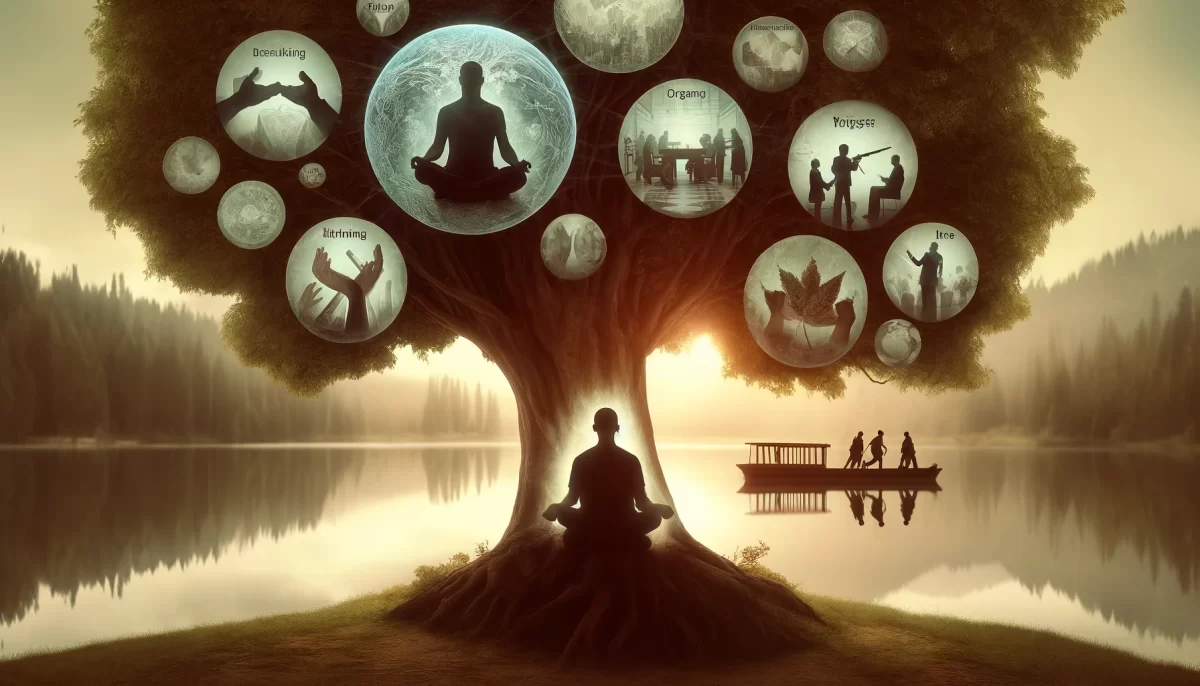


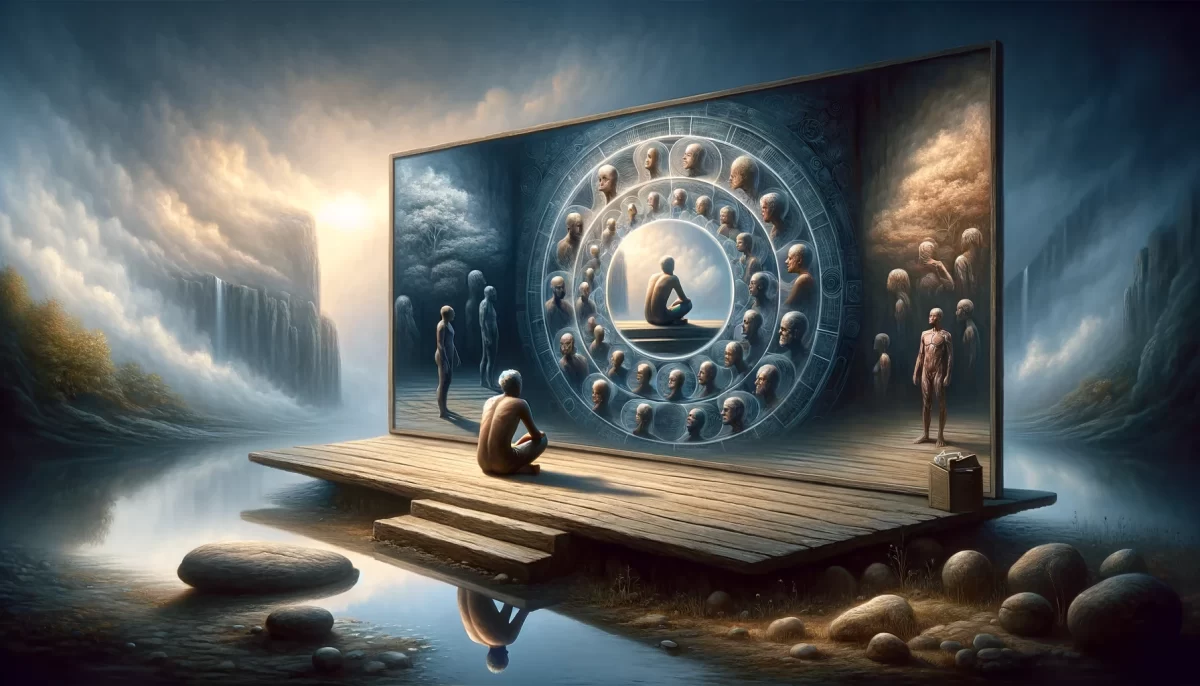

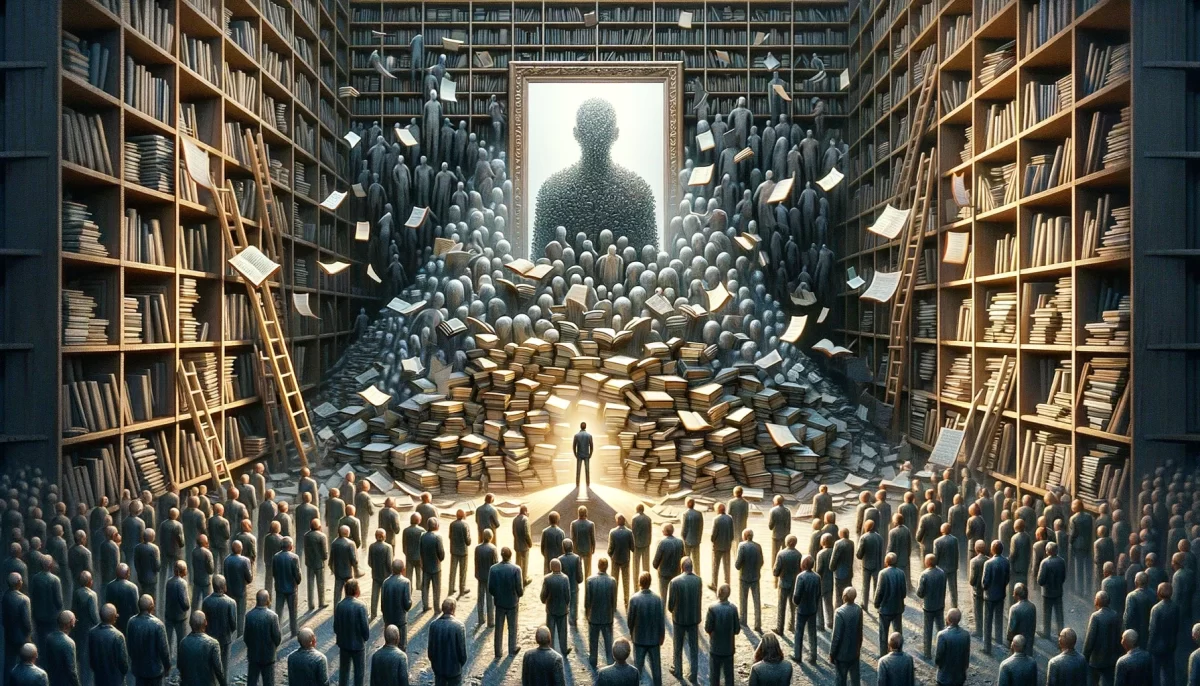
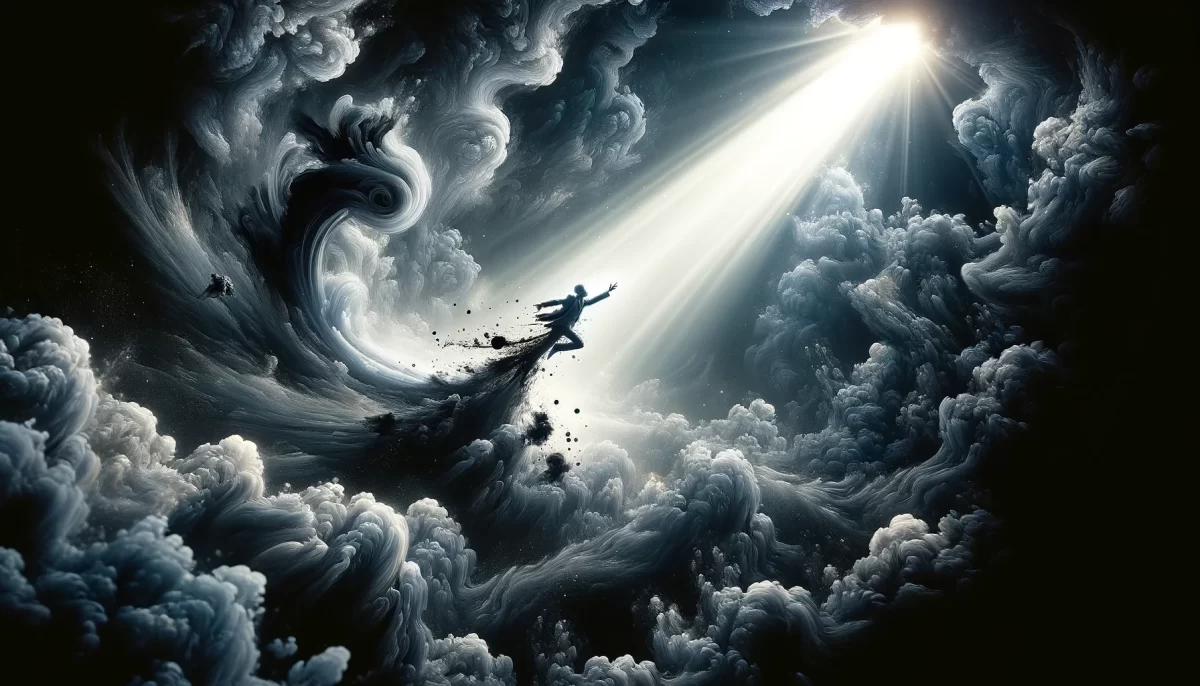




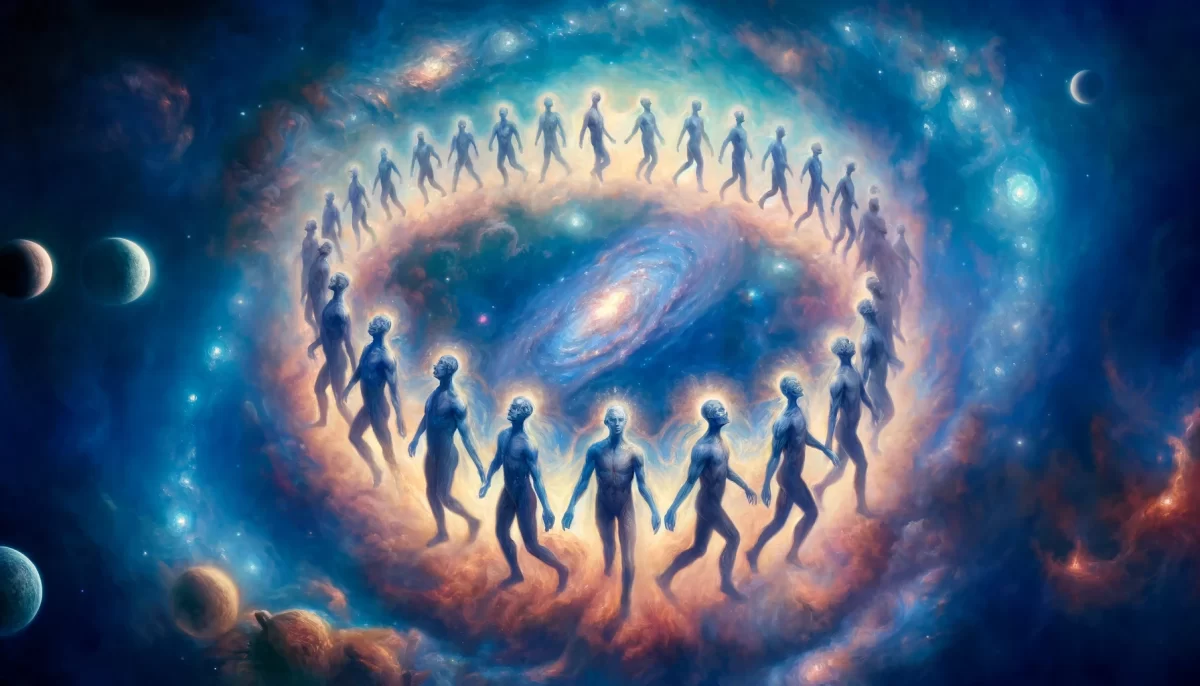
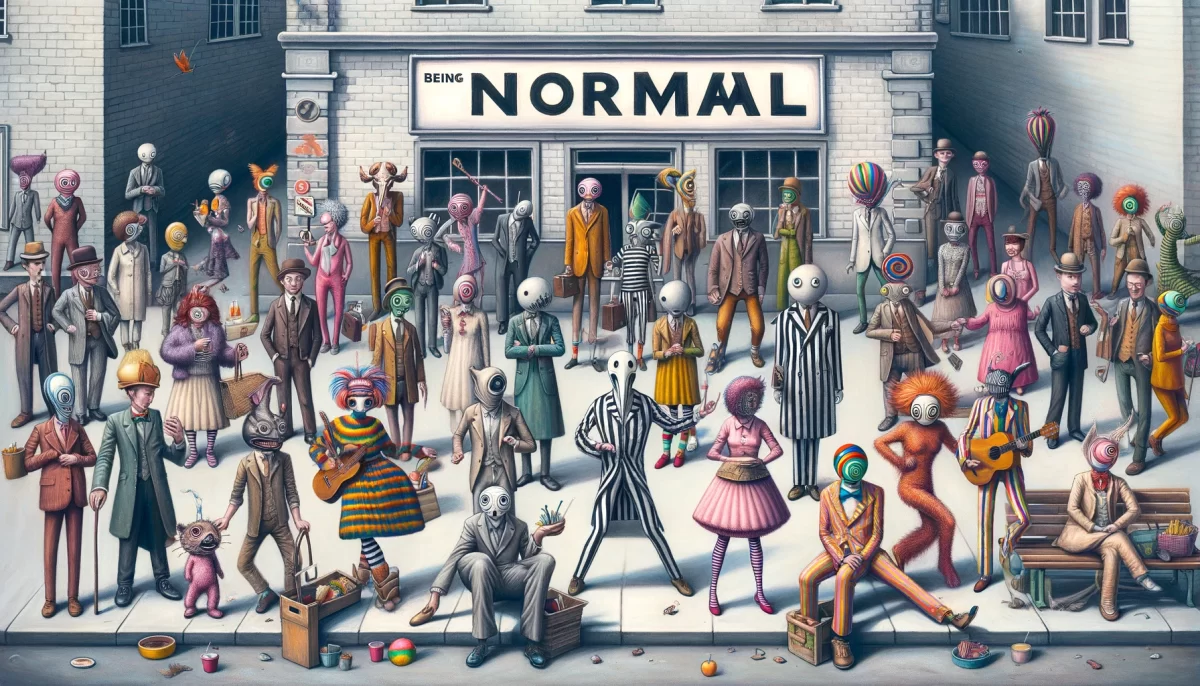

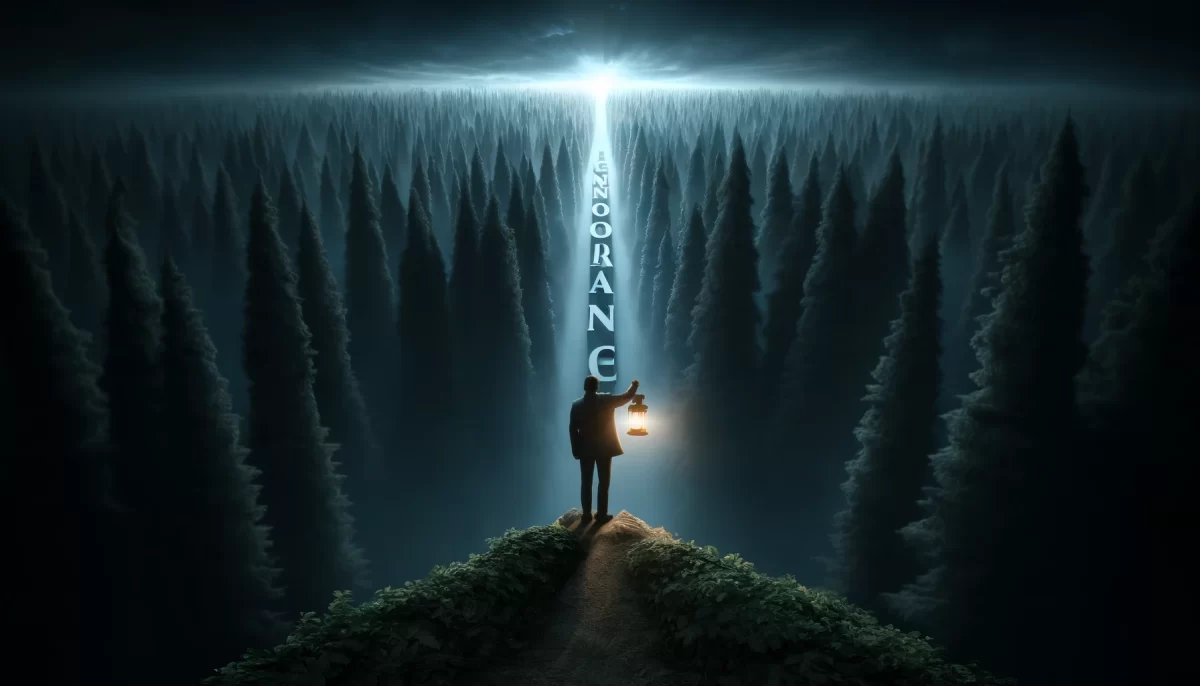


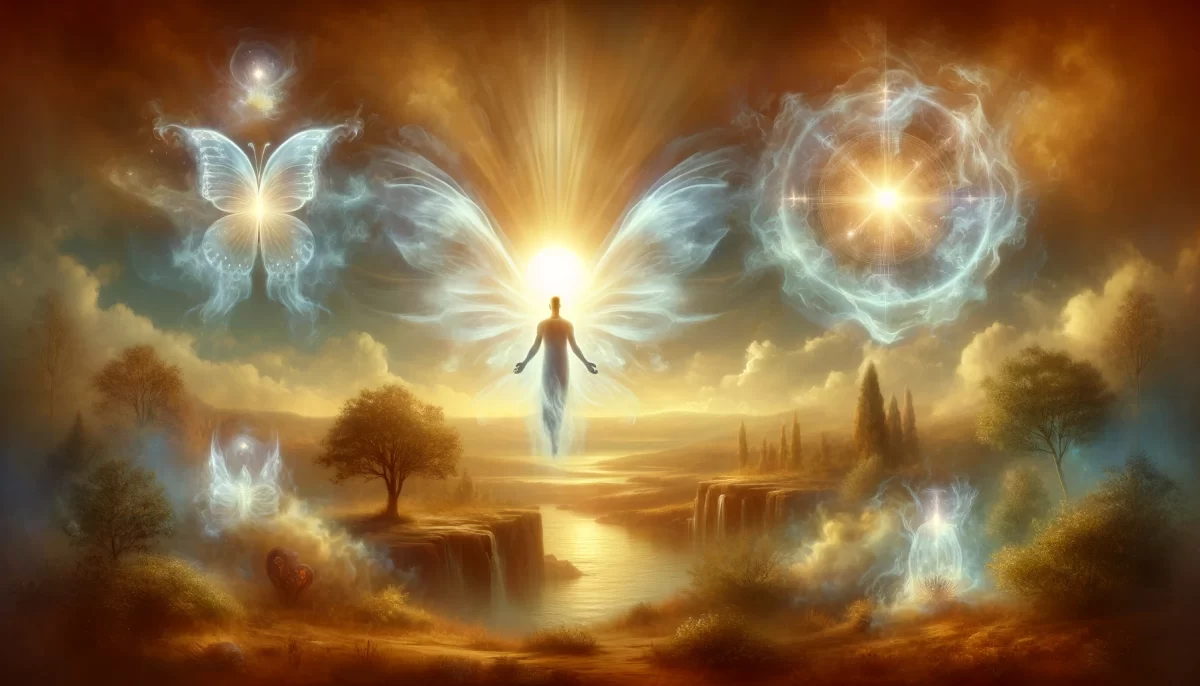
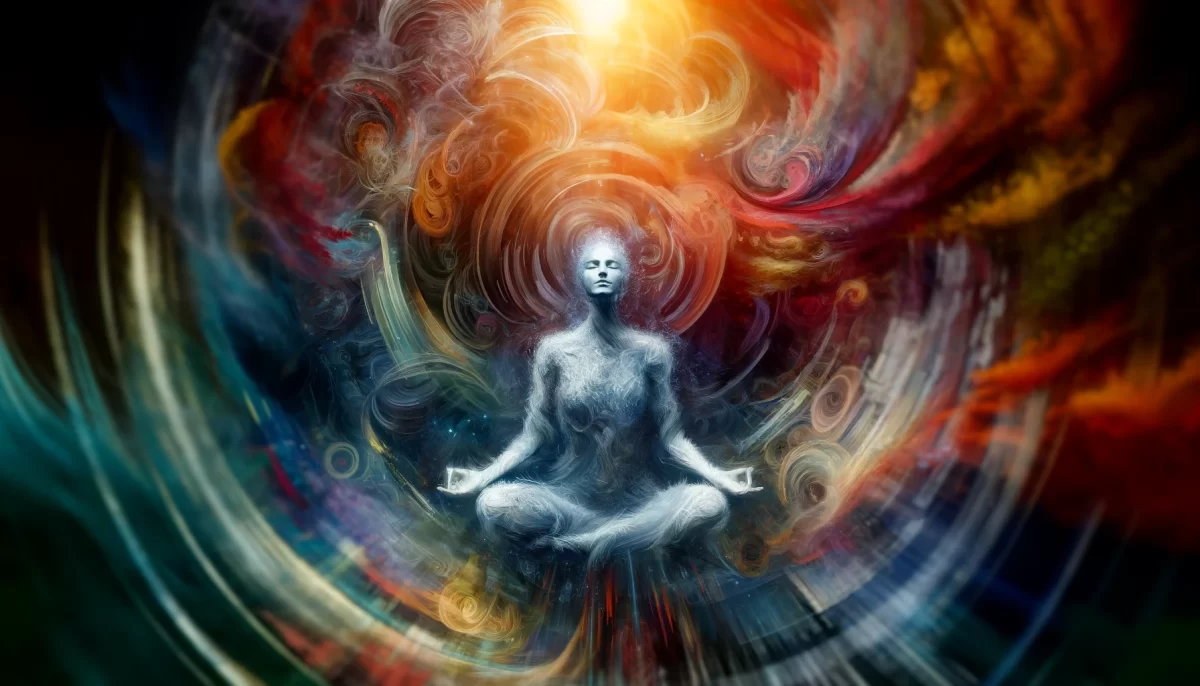
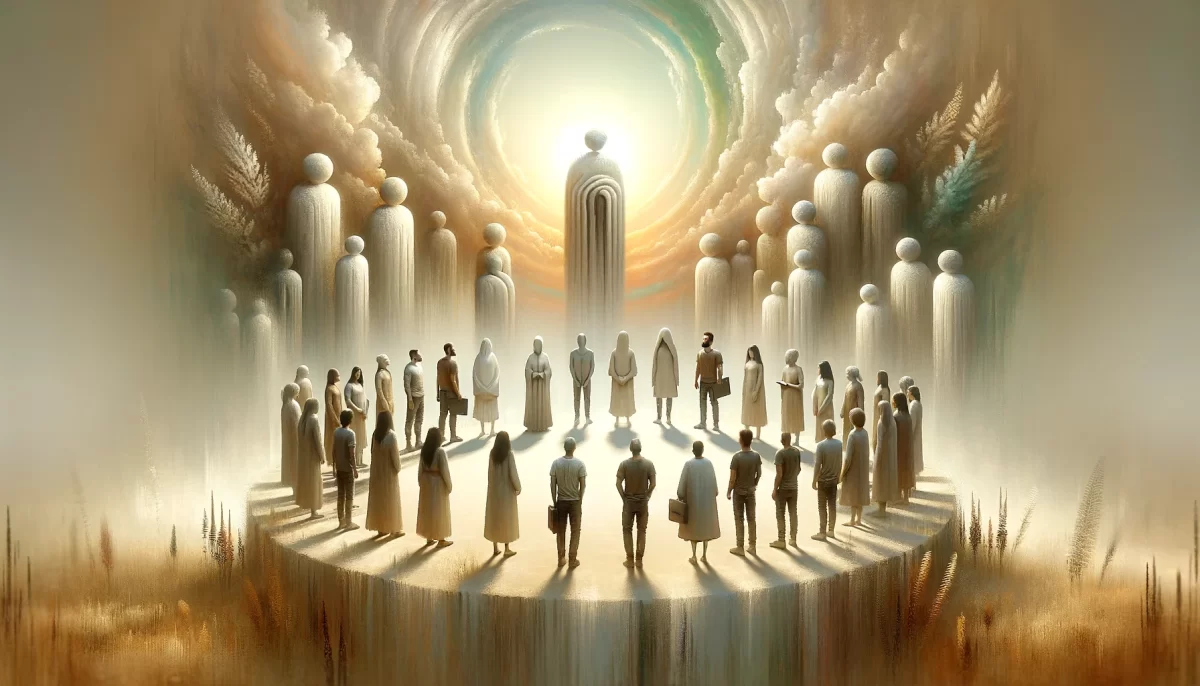




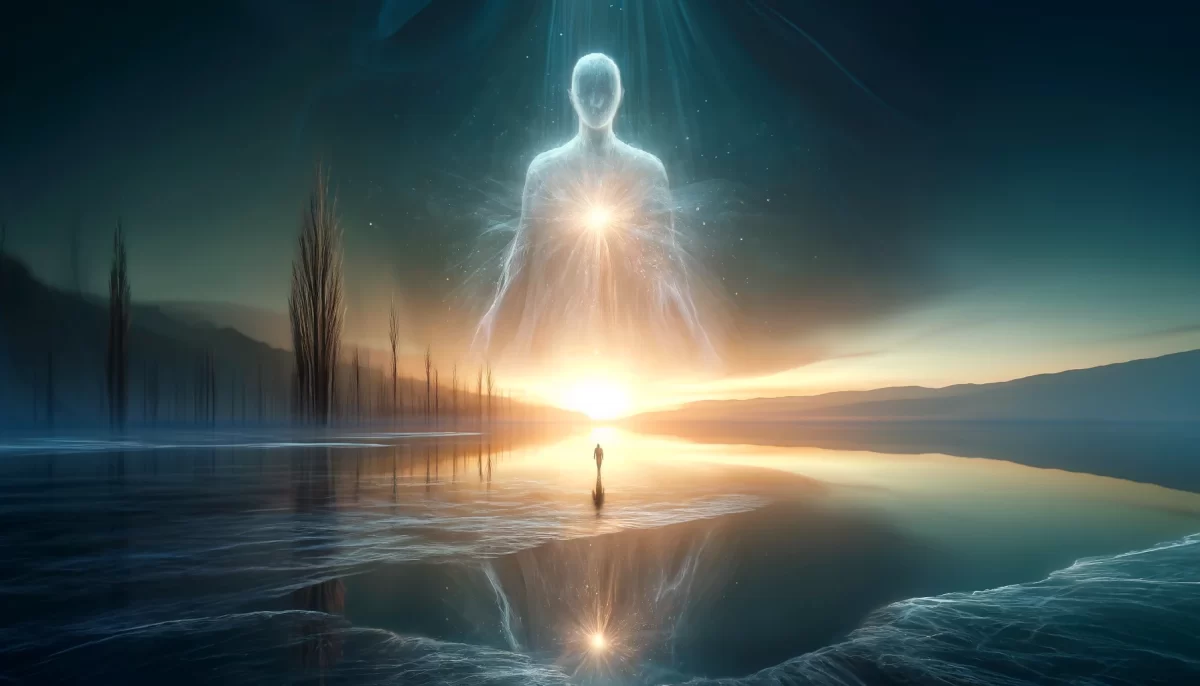
“Do You Know This Person?” is a contemplative reflection on a certain type of individual who struggles with contentment and perpetually seeks improvement and more. The passage provides insight into the inner workings and thought patterns of this person. Let’s delve deeper into the themes and messages conveyed in this piece:
1. Perpetual Dissatisfaction:
The passage introduces a person who seems to find it difficult to experience satisfaction. This individual is characterized by a perpetual sense of discontentment, always seeking more or better circumstances.
2. Guilt and Satisfaction:
The passage suggests that even if this person were to feel satisfied, she would experience guilt for feeling that way. This points to a complex relationship between contentment and guilt, indicating that the person might feel undeserving of satisfaction.
3. Striving for Improvement:
The person is described as always trying to make more out of things or striving to turn things into something better. This reflects a mindset of continuous improvement and the desire to optimize every situation or experience.
4. Disregard for the Present:
The passage implies that the person acts as though the current state of affairs is never good enough. This attitude may prevent her from fully embracing the present moment and appreciating the value of what already exists.
5. Gratitude and Unfulfilled Potential:
The person appears to feel that she needs to do more to show gratitude for the opportunity to be human. This suggests a sense of unfulfilled potential or the belief that she should constantly be striving to make the most of her human experience.
6. Questioning the Pursuit:
By presenting this type of person, the passage raises questions about the nature of constant striving and improvement. It prompts readers to consider whether such a mindset leads to genuine fulfillment or if it perpetuates a cycle of never-ending dissatisfaction.
7. Reflecting on Humanity:
The passage seems to invite readers to reflect on the broader human experience. It touches on themes of contentment, gratitude, and the struggle to balance ambition with acceptance.
8. Trail Wood:
The mention of “Trail Wood, 9/17” adds context to the writing, potentially indicating the date or setting in which this reflection was composed.
In summary, “Do You Know This Person?” offers a glimpse into the mindset of an individual who is always seeking more and never fully satisfied. Through this portrayal, the passage encourages readers to consider the implications of such a mindset on personal well-being and the ability to appreciate the present moment. It raises questions about the pursuit of improvement and how it intersects with the human experience.
The piece invites readers to reflect on their own attitudes towards contentment and self-improvement, sparking contemplation about the balance between ambition and embracing life as it is.
We are Space Monkey. 🐒🌟